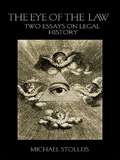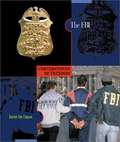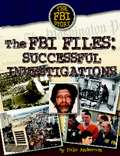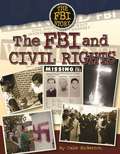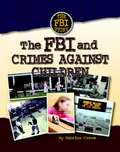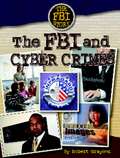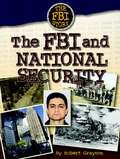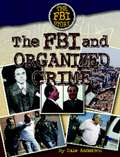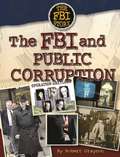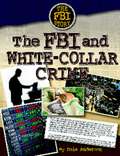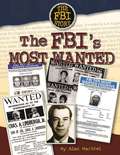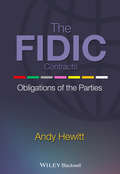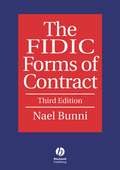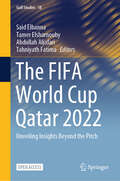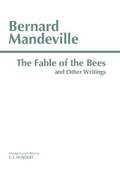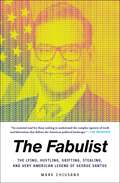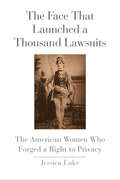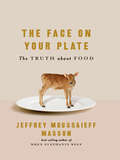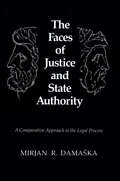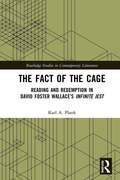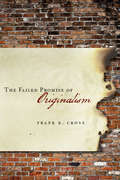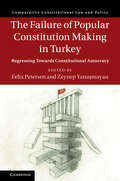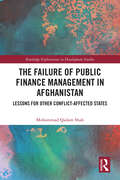- Table View
- List View
The Eye of the Law: Two Essays on Legal History (Birkbeck Law Press)
by Michael StolleisWritten by the eminent German legal historian, Michael Stolleis, these two ‘Essays on Legal History’ offer an original and compelling history of the symbolism through which law is characterised as being 'above' us. In ‘The Eye of the Law’, the history of this metaphor is followed from antiquity through to the present day: from the Greek Eye of Justice, the eye of the impartial judge of the Underworld, the Eye of God watching past, present and future, the Eye of the Prince, guiding his subjects, to the almighty Eye of the Law. While our belief in the law may have become brittle, nothing escapes what is now the Eye of Big Brother. ‘In the Name of the Law’ takes up the various formulas used to legitimate the decisions of the courts, from the times of absolutism over the 19th century until today. The speaker who speaks in the name of a higher being underlines his function: his authority comes from above. And it is ‘in the name of’ god, king, people, state, nation, or law, that a weak, earthly, justice receives its support.
The FBI (Cornerstones of Freedom, 2nd Series)
by Sarah De CapuaIntroduces the history and function of the Federal Bureau of Investigation, and presents facts about such topics as women and minorities in the Bureau, the FBI Academy, and how to become an agent. Includes bibliographical references and index.
The FBI Files: Sucessful Investigations
by Dale AndersonThe federal Bureau of Investigation (FBI) is a national agency dedicated to investigation federal crimes. Founded as a small team of special agents on July 26, 1908, the Bureau was first charged with enforcing the growing body of federal laws covering the United States as a whole. Almost from the beginning of its 100-year history, the Bureau has been the subject of legend and controversy. It has also evolved into a vast and sophisticated national law-enforcement agency. Whether as a federal crime-fighting force or a source of investigative support of local and state police forces, the modern FBI strives to embody its ideals of fidelity, bravery, and integrity. How did the FBI capture the Oklahoma City bomber in just two days? How did it track down the killer of Dr. Martin Luther King, Jr., in just a few weeks? Why did it take years to solve the infamous 1950 Brink's robbery? How have ordinary citizens helped bring down the nation's most wanted criminals? Whether it takes careful forensic science, years of investigative work, a carefully laid trap, or a timely tip, the FBI uses every tool at its disposal to catch the targets of its investigations.
The FBI and Civil Rights
by Dale AndersonThe Federal Bureau of Investigation (FBI) is a national agency dedicated to investigating federal crimes. Founded as a small team of special agents on July 26, 1908, the Bureau was first charged with enforcing the growing body of federal laws covering the United States as a whole. Almost from the beginning of its 100-year history, the Bureau has been the subject of legend and controversy. It has also evolved into a vast and sophisticated national law-enforcement agency. Whether as a federal crime-fighting force or a source of investigative support of local and state police forces, the modern FBI strives to embody its ideals of fidelity, bravery, and integrity. For many years, the FBI avoided civil rights cases, but escalating racial violence during the 1960s forced the Bureau to begin investigating these cases. Today, the Bureau works in three key civil rights areas-hate crimes against minority groups, abuse of power by public officials, and human trafficking. These types of cases pose many challenges to the FBI, but the Bureau today is committed to stopping people who would deny others their right to be treated with fairness and equality under the law.
The FBI and Crimes Against Children
by Sabrina CreweThe federal Bureau of Investigation (FBI) is a national agency dedicated to investigation federal crimes. Founded as a small team of special agents on July 26, 1908, the Bureau was first charged with enforcing the growing body of federal laws covering the United States as a whole. Almost from the beginning of its 100-year history, the Bureau has been the subject of legend and controversy. It has also evolved into a vast and sophisticated national law-enforcement agency. Whether as a federal crime-fighting force or a source of investigative support of local and state police forces, the modern FBI strives to embody its ideals of fidelity, bravery, and integrity. In its role as a national crime-fighting force, the FBI sometimes pursues the worst of all criminals-those who target and harm children. This volume examines the crimes that exploit children, looking at everything from online predators to kidnappers and killers and highlighting several famous cases. It shows how and when the FBI becomes involved and the techniques used by the FBI's Crimes Against Children team. The book also explains the important relationships between the FBI and its partners in law enforcement and in the community.
The FBI and Cyber Crime
by Robert GraysonThe federal Bureau of Investigation (FBI) is a national agency dedicated to investigation federal crimes. Founded as a small team of special agents on July 26, 1908, the Bureau was first charged with enforcing the growing body of federal laws covering the United States as a whole. Almost from the beginning of its 100-year history, the Bureau has been the subject of legend and controversy. It has also evolved into a vast and sophisticated national law-enforcement agency. Whether as a federal crime-fighting force or a source of investigative support of local and state police forces, the modern FBI strives to embody its ideals of fidelity, bravery, and integrity. Computers have changed the way people do business, gather information, communicate...and engage in crime. From remote locations in cyber space, criminals can break into a computer and steal valuable information, including credit card and social security numbers, leading to the theft of people's money and identities. Today, the FBI attacks cyber-crime by using sophisticated technology and developing wide-ranging partnerships with companies, academic communities, law enforcement agencies, and concerned individuals-all determined to protect the online community from scam artists, predators, and thieves.
The FBI and National Security
by Robert GraysonThe Federal Bureau of Investigation (FBI) is a national agency dedicated to investigation federal crimes. Founded as a small team of special agents on July 26, 1908, the Bureau was first charged with enforcing the growing body of federal laws covering the United States as a whole. Almost from the beginning of its 100-year history, the Bureau has been the subject of legend and controversy. It has also evolved into a vast and sophisticated national law-enforcement agency. Whether as a federal crime-fighting force or a source of investigative support of local and state police forces, the modern FBI strives to embody its ideals of fidelity, bravery, and integrity. This book shows the way the FBI operates in the post-9/11 world. By reviewing both the historical role and contemporary role of the FBI in matters of terrorism and national security, this book shows how the agency has reinvented itself into an intelligence-gathering counterterrorism force bent on stopping any and all terrorist threats against the United States. Protecting the nation from a terrorist attack is now-and for the foreseeable future-the FBI's top priority, and the agency has dedicated its resources to accomplishing this important mission.
The FBI and Organized Crime
by Dale AndersonThe Federal Bureau of Investigation (FBI) is a national agency dedicated to investigation federal crimes. Founded as a small team of special agents on July 26, 1908, the Bureau was first charged with enforcing the growing body of federal laws covering the United States as a whole. Almost from the beginning of its 100-year history, the Bureau has been the subject of legend and controversy. It has also evolved into a vast and sophisticated national law-enforcement agency. Whether as a federal crime-fighting force or a source of investigative support of local and state police forces, the modern FBI strives to embody its ideals of fidelity, bravery, and integrity. The FBI did not enter the fight against organized crime eagerly. However, once it did-and once Congress gave the Bureau powerful weapons to use against crime families-the FBI moved with skill. By finding informants, following the paper trail of money earned illegally, and using carefully placed wiretaps, the FBI has put hundreds of mobsters behind bars. Today, the FBI's fight against mobsters often involves working with police in other countries, because organized crime has become an international problem. At the same time, the FBI has focused on breaking gangs that control the illegal drug trade.
The FBI and Public Corruption
by Robert GraysonThe federal Bureau of Investigation (FBI) is a national agency dedicated to investigation federal crimes. Founded as a small team of special agents on July 26, 1908, the Bureau was first charged with enforcing the growing body of federal laws covering the United States as a whole. Almost from the beginning of its 100-year history, the Bureau has been the subject of legend and controversy. It has also evolved into a vast and sophisticated national law-enforcement agency. Whether as a federal crime-fighting force or a source of investigative support of local and state police forces, the modern FBI strives to embody its ideals of fidelity, bravery, and integrity. When people who commit bribery, extortion, or embezzlement work in local, state, or federal government, then their crimes are a form of public corruption. The perpetrators may be elected officials, judged, building and health inspectors, or even police officers. What these people have in common is a position of public trust, and they have chosen to violate that trust in exchange for money or something else of value. Rooting our corrupt officials and bringing them to justice is a task that falls to special agents of the FBI.
The FBI and White-Collar Crime
by Dale AndersonThe federal Bureau of Investigation (FBI) is a national agency dedicated to investigation federal crimes. Founded as a small team of special agents on July 26, 1908, the Bureau was first charged with enforcing the growing body of federal laws covering the United States as a whole. Almost from the beginning of its 100-year history, the Bureau has been the subject of legend and controversy. It has also evolved into a vast and sophisticated national law-enforcement agency. Whether as a federal crime-fighting force or a source of investigative support of local and state police forces, the modern FBI strives to embody its ideals of fidelity, bravery, and integrity. When is a basketball signed by retired superstar Michael Jordan not worth a cent? When the autograph is a forgery, that's when. White-collar crime includes any illegal action that deceives victims to gain money or property. From its early days, the FBI was involved in investigating crimes like embezzling funds from banks. In the 1970s, the Bureau put new emphasis on investigating a wide range of white-collar crimes. Today, agents across the country target criminals who victimize innocent investors, mortgage and insurance fraud rings, and insider trading in stocks.
The FBI's Most Wanted
by Alan WachtelThe Federal Bureau of Investigation (FBI) is a national agency dedicated to investigating federal crimes. Founded as a small team of special agents on July 26, 1908, the Bureau was first charged with enforcing the growing body of federal laws covering the United States as a whole. Almost from the beginning of its 100-year history, the Bureau has been the subject of legend and controversy. It has also evolved into a vast and sophisticated national law-enforcement agency. Whether as a federal crime-fighting force or a source of investigative support to local and state police forces, the modern FBI strives to embody its ideals of fidelity, bravery, and integrity. In 1952, a young man told the police where he thought they could find the notorious bank robber Willie Sutton. Sutton was on the FBI's Ten Most wanted Fugitives list, and the young man had recognized him from an FBI bulletin. This book tells the story of some of the FBI's most dramatic cases-and how ordinary citizens have often helped agents pursue and catch their quarry. From Wanted posters to TV's America's Most Wanted, the FBI has used publicity to make it harder for criminals to hide and easier for authorities to find them.
The FIDIC Contracts: Obligations of the Parties
by Andy Hewitt'It is clear that there is less chance of failure to observe contract compliance using [this] book, than reliance on reading though the appropriate clauses in the contract… A big plus is that those using the book will find answers to queries relating to contractual issues arising from the FIDIC contracts' conditions in a fraction of the time it would take if it were necessary to study the full text… For those using the FIDIC forms for the first time, or infrequently, this book is a must, whilst experienced users will find it a valuable memory jogger. Whichever category the reader falls into, using this book should improve performance…The book is ideal for engineers, quantity surveyors, contract managers and any person whose job it is to understand the workings of a FIDIC contract.' Roger Knowles The most important part of any contract is the obligations of the parties, the time frames in which the parties must perform these obligations, and the consequences of failing to meet them. Failure to carry out obligations correctly is a serious risk and common source of contention or claims. This practical ready-reference on the contractual obligations of the various parties for a FIDIC construction contract promotes efficient administration of construction projects, prevents contention and aids an easier understanding of their obligations. The FIDIC Contracts: Obligations of the Parties is presented in an easily-referenced format, with the obligations set out in tabular form and clear summaries for each type of contract given in separate sections for the Employer, the Contractor and the Engineer. This guide's accessible style will enable the project manager, quantity surveyor or contract manager to quickly check that his company is performing the required obligations correctly - and also to ensure that other parties are doing the same.
The FIDIC Forms of Contract
by Nael G. BunniIn September 1999, FIDIC introduced its new Suite of Contracts, which included a “new” Red, Yellow, Silver and Green forms of contract. The “new” Red Book was intended to replace the 1992 fourth edition of the Red Book, with the ambition that its use would cease with time. This ambition has not materialised and is unlikely to do so in the future. Despite the importance of the 1999 Forms, there has been very little published on the new concepts adopted in them and how they interact with the previous forms. This important work considers these aspects together with the many developments affecting the fourth edition of the Red Book that have taken place since 1997, when the second edition of this book was published, and relates them to key contracting issues. It is written by a chartered engineer, conciliator and international arbitrator with wide experience in the use of the FIDIC Forms and in the various dispute resolution mechanisms specified in them. Important features of this book include: · background and concepts of the various forms of contract; · a detailed comparison of the wording of the1999 three main forms, which although similar in nature; it nevertheless significantly differs in certain areas where the three forms diverge due to their intended purpose; · analysis of the rights and obligations of the parties involved in the contract and the allocation of risks concerned; · a range of ‘decision tree’ charts, analysing the main features of the 1992 Red Book, including risks, indemnities and insurances, claims and counterclaims, variations, procedure for claims, programme and delay, suspension, payments and certificates, dispute resolution mechanisms, and dispute boards; · a much enlarged discussion of the meaning of “claim” and “dispute” and the types of claim with a discussion of the Notice provision in the 1999 forms of contract for the submittal of claims by a contractor and by an employer; · the FIDIC scheme of indemnities and insurance requirements; and the methods of dispute resolution provided by the various forms of contract; and · five new chapters in this third edition, the first four chapters deal with each of the 1999 forms and the fifth chapter is confined to the topic of Dispute Boards.
The FIFA World Cup Qatar 2022: Unveiling Insights Beyond the Pitch (Gulf Studies #18)
by Said Elbanna Tamer Elsharnouby Abdullah Aljafari Tahniyath FatimaThis open access book presents a collection of case studies to analyse the FIFA World Cup 2022 held in Qatar, which revealed several complex aspects related to global football – its organization, its community, its related power dynamics, and its socio-economic implications. Behind this mega event lay unspoken narratives about the difficulties of hosting this global tournament in Qatar. This book takes the reader on a journey along the numerous strands connected to this multifaceted event. The case studies excavate both the best practices and the challenges that public policymakers and institutions in Qatar encountered in organizing the FIFA World Cup, including the pressures from various stakeholders involved, including FIFA, the sponsors, the football fans, and the local residents of Qatar. One such case sheds light on the debate surrounding the linkage between government-spending and the subsequent economic impact of hosting such a mega sporting event. The collection also delves into nuanced discussions about volunteering behaviour. Several case studies approach the central questions of sustainability and related implications following the Qatar event. As the first football World Cup to take place in a Middle Eastern country, the case studies also spotlight the role of cultural differences and associated implications, such as nation branding. Relevant to sociologists, economists, business and marketing researchers, and sports studies researchers, this book is a unique compilation bringing together multiple interdisciplinary, critical perspectives on Qatar's FIFA experience – from within the region, and beyond.
The Fable of the Bees
by Bernard Mandeville E. J. HindertAlthough never censored, Bernard Mandeville's anonymously published The Fable of the Bees; or Private Vices, Public Benefits came to be regarded soon after its publication in 1723 as the Enlightenment's epitome of immorality. As a naturalistic account of the mechanisms that condition human desire and of the unintended stabilizing social consequences of self-interested action, it has since been recognized as one of the eighteenth century's most significant works of social theory.
The Fabulist: The Lying, Hustling, Grifting, Stealing, and Very American Legend of George Santos
by Mark ChiusanoFrom the dogged Long Island reporter who has been on his trail since 2019, the bizarre, page-turning, and frankly hysterical story of America&’s most outrageous grifter—former US Representative George Santos.America has grown used to larger-than-life politicians: Teflon Don, AOC, MTG, Dark Brandon, and all the rest have injected DC politics with an unmistakable edge of celebrity flair and tabloid intrigue. Yet in 2022, a new player on the national scene outshone them all. George Anthony Devolder Santos, and his revolving door of pseudonyms, shed glaring new light on how far we&’d all let our politics slide as his claimed resume was shred to bits in the wake of a longshot run to office from New York&’s 3rd Congressional District. From Wall Street gigs to an amateur volleyball career, from embellished claims of Jewish heritage to a fabricated 9/11 story involving his mother&’s death, Santos&’s legend continued to grow as his web of lies evaporated in real time. And the only thing wilder than this charlatan embedding himself in the warm, consequence-evading arms of our nation&’s capital was the Queens con artist&’s refusal to bow his head in shame. Newsday alum and PEN/Hemingway honoree Mark Chiusano tells the full (well, as full as can be given the subject) story of Santos here for the first time. From humble years spent in Brazil, to glamorous nights on the west side of Manhattan, to the stunning small-time scams employed to ease his slippery climb up the American society ladder, The Fabulist tells a story you&’ll have to read for yourself to believe…and even then, it&’s George Santos, so who&’s to say for sure. Combining the very best of boots-on-the-ground journalism, dishy backroom dealings, and glittery details about Gold Coast mansions and bodice-baring drag shows that&’d feel just as at home in your next summer beach read, The Fabulist is truly stranger than fiction.
The Face That Launched a Thousand Lawsuits: The American Women Who Forged a Right to Privacy
by Jessica LakeA compelling account of how women shaped the common law right to privacy during the late nineteenth and early twentieth centuries Drawing on a wealth of original research, Jessica Lake documents how the advent of photography and cinema drove women--whose images were being taken and circulated without their consent--to court. There they championed the creation of new laws and laid the groundwork for America's commitment to privacy. Vivid and engagingly written, this powerful work will draw scholars and students from a range of fields, including law, women's history, the history of photography, and cinema and media studies.
The Face of Justice
by Bill BlumIn the midst of a custody battle against his wife for his daughter, a lawyer is confronted by a terror from his past. A ruthless killer--the lawyer's ex-client--escapes prison and kidnaps the judge who sentenced him. Contacted by the FBI, the lawyer becomes involved in the hunt for the killer, who taunts the search team with videos of the judge and late night phone calls. Still bound by the attorney-client privilege with his former client, the lawyer embarks on his own investigation based on suspicions he can't sharewith law enforcement officials...and discovers a strange connection between his wife and the kidnapping case!
The Face on Your Plate: The Truth About Food
by Jeffrey Moussaieff Masson"It's a challenge to create transformative moments with books, but [Masson] does it."--Susan Salter Reynolds, Los Angeles Times In this revelatory work, Jeffrey Moussaieff Masson shows how food affects our moral selves, our health, and our planet. Masson investigates how denial keeps us from recognizing the animal at the end of our fork and urges readers to consciously make decisions about food.
The Faces of Injustice
by Judith N. ShklarPonders such questions as: How can we distinguish between injustice and misfortune? and What can we learn from the victims of calamity about the sense of injustice they harbour? Shklar formulates a new political and moral theory of injustice.
The Faces of Justice and State Authority
by Mirjan R. DamaskaA leading legal scholar provides a highly original comparative analysis of how justice is administered in legal systems around the world and of the profound and often puzzling changes taking place in civil and criminal procedure. Constructing a conceptual framework of the legal process based on the link between politics and justice, Mirjan R. Damaska provides a new perspective that enables disparate procedural features to emerge as fascinating recognizable patterns.
The Fact of the Cage: Reading and Redemption In David Foster Wallace’s "Infinite Jest" (Routledge Studies in Contemporary Literature)
by Karl A. PlankDavid Foster Wallace’s Infinite Jest raised expectations of what a novel might do. As he understood fiction to aim at what it means to be human, so he hoped his work might relieve the loneliness of human suffering. In that light, The Fact of the Cage shows how Wallace’s masterpiece dramatizes the condition of encagement and how it comes to be met by "Abiding" and through inter-relational acts of speaking and hearing, touching, and facing. Revealing Wallace’s theology of a "boneless Christ," The Fact of the Cage wagers that reading such a novel as Infinite Jest makes available to readers the redemption glimpsed in its pages, that reading fiction has ethical and religious significance—in short, that reading Infinite Jest makes one better. As such, Plank’s work takes steps to defend the ethics of fiction, the vital relation between religion and literature, and why one just might read at all.
The Failed Promise of Originalism
by Frank B. Cross.Originalism is an enormously popular—and equally criticized—theory of constitutional interpretation. As Elena Kagan stated at her confirmation hearing, "We are all originalists." Scores of articles have been written on whether the Court should use originalism, and some have examined how the Court employed originalism in particular cases, but no one has studied the overall practice of originalism. The primary point of this book is an examination of the degree to which originalism influences the Court's decisions. Frank B. Cross tests this by examining whether originalism appears to constrain the ideological preferences of the justices, which are a demonstrable predictor of their decisions. Ultimately, he finds that however theoretically appealing originalism may seem, the changed circumstances over time and lack of reliable evidence means that its use is indeterminate and meaningless. Originalism can be selectively deployed or manipulated to support and legitimize any decision desired by a justice.
The Failure of Popular Constitution Making in Turkey: Regressing Towards Constitutional Autocracy (Comparative Constitutional Law and Policy)
by Felix Petersen Zeynep YanaşmayanThis book offers an in-depth account of the failure of popular constitution making in Turkey from 2011 to 2013, which was an anomaly in the otherwise authoritarian history of Turkish constitutional politics. The authors demonstrate that, even in unfavorable conditions, constitution making that brings together different stakeholders can potentially lead to significant improvement of constitutional regimes. Long-standing societal divides regarding cultural and religious diversity, which were evident in political parties' negotiations, played a significant role in the failure of the process in Turkey. Most notably, the ruling AKP's insistence on establishing a presidential system - supported by neither other political parties nor the public - destabilized the process and exacerbated distrust among the drafters. Unfavorable procedures, particularly an unrealistic deadline and the unanimity principle, prevented consensus and allowed the AKP to hijack the process. The process was a missed opportunity for democratization before Turkey plunged into full-fledged democratic backsliding.
The Failure of Public Finance Management in Afghanistan: Lessons for Other Conflict-Affected States (Routledge Explorations in Development Studies)
by Mohammad Qadam ShahIn rebuilding conflict-affected states, a major portion of foreign aid focuses on reforming public finance management systems and supporting annual budgets. However, how budgets are allocated and how reforms take shape in practice remain critical questions.This book analyzes the politics of reform and budget allocation in the most expensive liberal state-building effort in history: Afghanistan. Through a detailed political economy analysis, it explores the origin, continuity, and evolution of Afghanistan’s centralized public finance management system. Such centralization, readopted in the 2004 Constitution, constrained local participation, perpetuated inequities, and undermined predictability and transparency. Key reforms including the “Provincial Development Planning Guideline” and “Provincial Budgeting Policy” aimed to address these shortcomings but failed due to political resistance, elite capture, and structural inefficiencies. The analysis reveals informal dynamics behind the allocation of discretionary development budget consisting of the Afghan central government’s political considerations (political relationship, political importance, and strength and weakness of local administrations) and lobbying strategies of local actors. This dynamic enabled the central government to continue to use public funds for purchasing political legitimacy to remain in power.Afghanistan’s case highlights the limits of externally driven state-building that prioritizes centralization over local dynamics. The book offers key lessons on inclusive governance, structural barriers, and sustainable public finance reforms in conflict-affected states. It appeals to donors, development experts, and researchers in public finance, foreign aid, security, and development studies.
